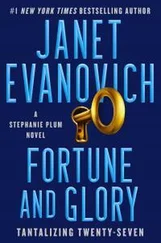Daniel sipped his own coffee. The church’s Elder Board had appointed a committee to recommend how to spend the Caruthers bequest. Sara was its chair—an excellent choice, given her background and experience. Daniel considered Sara a no-nonsense, get-the-job-done professional. She would have made a fine army officer had she chosen a different career path.
“What progress?” She shrugged. “We’re deadlocked.”
“How can you be? You have five members. That means no tie votes.”
She smiled wryly. “We agreed from the start to require a minimum of four votes to make a final recommendation. Alas, our committee consists of two inflexible Contemporaries, two unyielding Traditionalists, and me. I abstain whenever we vote because that’s the only way I know to stay friendly with both sides.”
“Has it worked?
“So far.” Sara added a nod. “I’m perceived as neutral—which has helped both sides to remain civil to each other during our meetings.” A frown spread across her face. “But our civility hasn’t translated into progress. I can summarize what the committee has done with a single word—nothing.”
Daniel paused to gather his thoughts. “I fear for the future of Glory Community Church. Our highly polarized rift is the kind of conflict that can wreck a church fellowship. What bothers me most is that I don’t know how to get our people to back down from their sincerely held positions.” He added, “The elders rightly expect me to get everyone working toward a solution that will make the whole congregation happy.”
“Isn’t that a trick that pastors learn on the job?” she said with another smile.
He grinned back. “I spent twenty-one years in the U.S. Army and rose through the ranks to become a colonel, commanding a cadre of other chaplains. My experience taught me leadership, not conflict resolution.”
“I presume that shouting ‘Attention!’ has a greater effect in the army than in a church.”
“Oh, I can yell loud enough to stop a fight in the choir loft, but what do I do next? I wish that your ‘Martha’ books included a volume on compromise and forgiveness.” He toasted Sara with his coffee mug. “Your new book on working with stained glass will come in handy should we have to replace broken panels in the sanctuary.”
“Sorry, but Stained Glass Made Simple is the next book in the series. The one I have to deliver the day before Thanksgiving is called Finding Undiscovered Treasures in Your Attic.”
He chuckled. “That’s bound to be a bestseller in Glory. The older houses in town have upward of a hundred fifty years of accumulated junk in their attics.”
“All of which someone wants to buy. Thanks to the auction sites on the Internet, ‘junk’ is an obsolete concept. The trick is to locate the one person somewhere in the world who actually covets the trinket or doodad or knickknack your great-great grandmother stuffed into a cardboard box all those decades ago.”
“Getting back to our problem…” Daniel began.
Sara interrupted. “I think you’re being too hard on yourself. After all, fights about music in church are a recent phenomenon, a challenge that’s caught pastors by surprise.”
“Actually…” He spoke softly to avoid sounding like a schoolteacher giving a lecture. “Traditional music versus contemporary music has been a battleground for two thousand years. During the first century some Christians argued that the use of musical instruments of any kind during worship was either too much like the old Hebrew ceremonies or too pagan. Fifteen hundred years later the fight centered on whether secular music, harmony and folk melody should be banned from church, and whether all musical instruments except the organ should be eliminated.”
Sara made a face. “I stand corrected. Our fight is clearly part of a long tradition, but I can’t help feeling that the battle is unnecessary. We have two services, one traditional and one contemporary. The Caruthers bequest provides more than enough money to keep both sides happy.”
“True. We have plenty of cash but only one sanctuary, which both groups want to redesign. That’s really the crux of the disagreement.”
She threw up her hands. “Exactly! The Traditionalists want it to look like a European cathedral. The Contemporaries want to give it the feel of a modern megachurch.” She added, “The Traditionalists and the Contemporaries have both lost focus. We worship to please God, not ourselves.”
“Both groups think they have that angle covered, too. Lily told me that God enjoys hymns and could not possibly be pleased with an insipid rock song that repeats the same simple words ten times over. Debbie Akers insists that God must be ‘bored off his gourd,’ as she put it, with a thousand years of dull hymn music and even duller words. Consequently, she says contemporary services have become wildly popular thanks to divine intervention.”
Sara laughed. “I’m sorry, Daniel, but the battle at Glory Community does have a humorous side.”
“I might have agreed with you a few months ago, but the truth is I don’t find our fight funny anymore. I’m too worried that someone will get hurt.”
Emma deftly carried a tray laden with an insulated carafe, two mugs and a plate of shortbread cookies as she led Simon Rogers to the gazebo in The Scottish Captain’s back garden. The old wooden octagon was a pretty spot for a chat after breakfast, and also far enough away from the main house that it afforded a measure of privacy. The sun felt delightfully warm that Thursday morning. The weather forecast called for the temperature to climb into the high sixties by lunchtime.
“Thank you for rescuing me,” Simon said. “The other travel writers in our group are going fishing for striped bass in Albemarle Sound. I would rather chew on ground glass. I would certainly get seasick and, with my bad luck, I would catch a dozen fish and be required to eat them.”
“Assuming you could find someone to clean and cook them for you. We don’t clean and fry fish for our guests at The Scottish Captain.”
“Now I’m doubly glad I stayed behind. Today will be a perfect opportunity to recharge my batteries. There’s a day trip to the Outer Banks tomorrow.”
“Then you have no plans for this morning?”
“Not really. I shall pretend that I’m a road weary New England snowbird who decided to spend a down day in Glory, North Carolina. The tour of the grand houses and local museum yesterday was fascinating. I shall continue to browse around the town and soak up the ambience.” He brushed a cookie crumb out of his beard. “With luck I’ll find another Beetle on another porch.”
Emma hoped that Simon didn’t notice how she winced. The last thing Glory needed was a rowdy reputation among travel writers. Emma had her future tied up in The Scottish Captain. Her B and B must succeed and that would only happen if Glory prospered as she’d predicted it would.
“Please don’t get the wrong idea about Glory,” she said evenly. “We specialize in quiet, prank-free vacations.”
“Oh yes, Glory is definitely a quiet place—which leads me to ask an impertinent question. Why would someone like you decide to abandon Seattle, a vibrant big city, and move to a pastoral southern town that even the Union Army avoided during the Civil War?”
The jolt of astonishment she felt came out as a nervous hiccup. She hadn’t shared her biography with Simon Rogers, but he seemed to know a lot about her. Emma took a sip of coffee to help clear her throat. “You mentioned that I moved here from Seattle. Where did you come across that tidbit of information?”
“On the Internet, of course. Yesterday, I visited the Glory Public Library and typed your name into Google. Several ‘hits’ pointed to your biography.” He grinned. “That’s what happens when you become well-known enough in your field to make presentations at national hotel management conferences.”
Читать дальше












